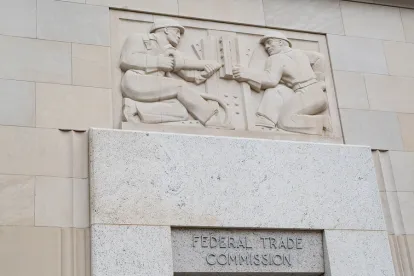The Federal Trade Commission and state attorney general have been evaluating advertising agency liability for deceptive marketing with greater frequency. Whether or not a company describes itself as an “ad agency,” it may still be held responsible for illegal acts or practices depending upon the facts.
The ad agency’s role in deceptive marketing campaigns is often a dispositive factor, but not the only one.
Willful Blindness Not a Defense
From dietary supplement and business opportunities, to consumer credit campaigns, the FTC’s Bureau of Consumer Protection and state AGs have been issuing civil investigative demands and subpoenas to ad agencies at a greater clip, seeking information about the nature and degree of their own conduct, as well as the conduct of their third-party clientele.
Often, ad agencies are quick to try to advance “acting under the direction of the advertiser” that had “ultimate responsibility to approve content” type arguments. When marketers are involved in unfair or deceptive conduct in violation of the FTC Act of state UDAP statutes, however, regulators do not consider an ad agency’s merely looking the other way from false and misleading representations in their advertising to be a viable defense.
Past settlements have involved, without limitation, allegations that ad agencies acted as accomplices by producing advertisements that it knew or should have known contained deceptive representations.
Meaningful Inquiry Required
Consider a 2018 settlement in a matter involving the FTC and the State of Maine, and a radio and TV ad agency. According to the complaint, the agency created and disseminated deceptive radio ads for weight loss products marketed by its client. As alleged, the agency disregarded the need for adequate claim substantiation, developed and disseminated false testimonial, portrayed promotional content as independent news stories and created deceptive call scripts.
The terms of the settlement include, without limitation, prohibitions against making misleading or unsubstantiated claims. Notably, the prohibitions apply both to advertising disseminated by the agency on its own behalf, as well as to advertising materials created for and disseminated on behalf of its clients. Consequently, the agency is potentially liable for unsubstantiated claims made its clients.
This settlement amply illustrates that ad agencies (and other third-parties) that are interested in limiting liability exposure should consult with experienced FTC attorney in furtherance of establishing records that a reasonable inquiry has been made, and that no actual or constructive (knew or should have known) knowledge exists. The nature, degree and frequency of such inquiries may vary amongst different campaigns and verticals.
Advantages of Monitoring Marketing Activities
Monitoring marketing partners in the digital advertising space is not a theoretical compliance approach for those that want to avoid regulatory attention altogether and be in a more advantageous, defensible position in the event that an investigation is initiated into the conduct of one or more parties.
Without limitation, ad agencies, affiliate marketers and lead generators are all expected by the FTC and state attorneys general to conduct reasonable due diligence and implement written policies outlining such activities. Consider that CID’s and subpoenas directed to third-party intermediaries (e.g., affiliate networks, lead aggregators and ad agencies) often contain requests for information pertaining to monitoring practices and written policies.
Those that want to mitigate potential liability exposure and increase the number of mitigating factors in the event that something goes wrong should design and implement vetting and advertising compliance protocols that result in a proud presentation of responsive monitoring-related documentation, rather than having to try to convince an agency that verbal policies exist. The latter, may not get you very far.
Takeaway: The Federal Trade Commission and state attorney general continue to expand the third-party liability theories that they seek to utilize in order to protect consumers from unlawful advertising practices, including substantial assistance and vicarious liability. As a general rule, it is safe to assume that all third-parties in the stream of commerce are susceptible to regulatory scrutiny, from ad agencies and affiliate networks, to payment processors and online merchants. The implementation of advertising compliance and third-party monitoring protocols are a critical part of any preventative plan.




 />i
/>i

